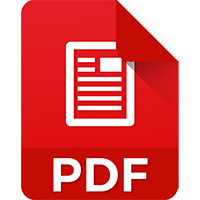On 11th January 2021, the outgoing Trump Administration designated the Houthi militia as a “foreign terrorist organization” and thereby subjected it and the de facto government it controls to the American Counter Terrorism Sanctions Program. The Program also authorizes the US Government to impose sanctions against international companies and organizations that provide support, services, or assistance to, or otherwise trade with, the designated Foreign Terrorist Organizations. This client alert discusses the impact of these measures on humanitarian work and doing business in Yemen.
This client alert discusses the impact of these measures on humanitarian work and doing business in Yemen.
The US Sanctions against the Houthi Militia
On 11th January 2021, the US State Department announced its intention to designate Ansarallah, the official name of the Houthi militia, as a “foreign terrorist organization” (“FTO”) under section 219 of the Immigration and Nationality Act and as a Specially Designated Global
Terrorist (“SDGT”) under the authority of Executive Order (“E.O.”) 13224 (as amended by E.O. 13886).
The designation took effect as of 19th January 2021, one day before the new US President, Joe Biden, took office and Ansarallah was added to the Specially Designated Nationals and Blocked Persons List (“SDN List”).
The Effect on Humanitarian Work and Doing Business in Yemen
The decision to designate Ansarallah as an FTO was criticized by many foreign aid and development organizations, as well as the United Nations Special Envoy to Yemen, fearing that humanitarian work and the supply of foodstuff and medical equipment to the 80% of the
Yemeni population residing in the Houthi controlled territories would come to a standstill.
In addition to freezing Ansarallah’s funds, the Counter-Terrorism Sanctions Program effectively prohibits all transactions and activities involving Ansarallah or any entity in which Ansarallah owns, directly or indirectly, any interest of 50 percent or more. Given that the
Houthi militia controls the de facto government and government institutions (including tax and customs revenues) in the northern parts of Yemen, operating in these territories would – unless authorized – violate the sanctions regime. This also applies to providing humanitarian aid or supplying foodstuff and medical goods.
The OFAC General Licenses
The ensuing collateral damage was, however, limited, at least in part, by the Office of Foreign
Assets Control (“OFAC”) within the U.S. Department of the Treasury, the main agency
administering the sanctions.
OFAC issued – along with the designation – four General Licenses (“GL”) 1 authorizing transactions involving Ansarallah
which are effected
• on behalf of the US Government; or
• through the United Nations, the Red Cross and the Red Cross and Red Crescent Societies;
or which constitute:
• certain activities by non-governmental organizations to support humanitarian projects, democracy building, education, non-commercial development projects, and environmental protection in Yemen; or
• certain (also commercial) transactions related to the supply of foodstuff, pharmaceuticals and medical equipment (including spare parts and software updates) to Yemen.
As a result, aid work and essential supply transactions are exempted from the sanctions.
What will the Biden Administration do?
The fate of the US sanction regime in relation to Yemen will, of course, depend to a large extent on the Biden Administration’s position on Iran. While it is generally expected that the Biden Administration will amend US foreign policy in relation to Iran, it still remains to be
seen how this will affect regional conflicts such as the one in Yemen and its position towards the Houthi militia.
On 23rd January 2021, as a first step, the new administration announced that they are reviewing Ansarallah’s terrorist designation. As a result, on 25th of January OFAC issued a fifth GL, GL no. 132 , in which it authorized all transactions and activities involving Ansarallah until 12:01 a.m. eastern standard time on 26th February 2021.
This means that while the designation of the Houthi militia as an FTO remains in place, the effect of such designation (i.e. the sanctions) are suspended for one month.
What does this mean for International Development Organizations and Companies involved in Yemen?
Any international development organization or company active in Yemen will need to observe developments carefully. At the present time, however, humanitarian and relief work can continue and the supply of foodstuff and medical goods also remains permissible.
| If you would like more information about this topic then please contact us. | |
|---|---|
| Dr. Kilian Bälz Partner Berlin/Cairo/Tripoli kb@amereller.com |
Hussam Mujally Associate Berlin mujally@amereller.com |
BERLIN | Amereller Rechtsanwälte | Kurfürstenhöfe | Spreeufer 5, 10178 Berlin | Germany Tel: +49 30 609 895 660
CAIRO | MENA Associates in association with Amereller | GIC Tower | 21 Soliman Abaza St. | Mohandessin | Giza | Egypt
SHEIKH ZAYED (new): B 7-3-1, Polygon Business Park | SODIC-West | Sheikh Zayed | Cairo | Egypt T: +20 2 376 26 201
DUBAI | Amereller Legal Consultants | One by Omniyat, Business Bay, 14th Floor | P.O. Box 97706 | Business Bay | Dubai UAE | t: +971 4 432 3671
This client alert is a public document for informational purposes only and should not be construed as legal advice. Readers should not act upon the information provided here without consulting with professional legal counsel. This material may be considered advertising under certain rules of professional conduct. Copyright © 2021






